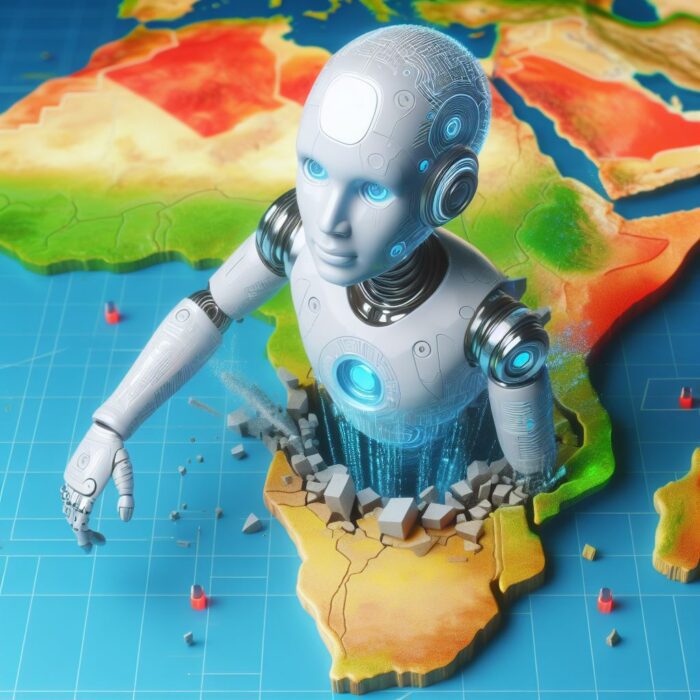Africa, a diverse and abundant continent, stands at a crucial crossroads for its development. In this scenario, artificial intelligence (AI) emerges as a transformative force with the potential to address fundamental challenges and accelerate progress in the region.

Health:
In the field of health, notable examples of AI investment include the collaboration between the government of Rwanda and the company Zipline. Rwanda has deployed Zipline’s medical drones that use AI to deliver essential medical supplies to remote areas. This investment not only enhances accessibility to healthcare but also establishes an innovative model for the region.
Additionally, Microsoft has announced significant investments in AI projects focused on health in Africa. Through the AI for Health initiative, the company aims to tackle critical public health challenges using advanced technologies, providing substantial support for the development of data-driven solutions in the region.
Agriculture:
Investment in AI for agriculture in Africa has been driven by initiatives such as those by the Gates Foundation and the Rockefeller Foundation. These organizations have allocated funds to develop AI-based precision agricultural technologies that help farmers optimize resource usage and improve productivity.
Furthermore, the World Bank has supported projects like the Precision Agriculture Development Program in Mozambique, which uses AI to provide specific advice to farmers on crop management. This investment aims not only to increase production but also to strengthen the resilience of agricultural communities.
Education:
In the field of education, the Mastercard Foundation has invested in the “Rumie” project that utilizes AI to provide digital education in areas with limited access to traditional educational resources. This investment seeks to bridge the education gap by using intelligent technology to offer relevant and personalized educational content.
Additionally, Google has announced investment initiatives in digital skills training programs and online education in Africa. The company aims to empower young Africans with technology-related skills, including artificial intelligence, to prepare them for the evolving digital economy.
Financial Inclusion:
In the financial sector, companies like the African startup “Flutterwave” have attracted investments to develop AI-based payment solutions. Flutterwave uses advanced algorithms to facilitate secure and efficient transactions, promoting financial inclusion throughout the region.
Similarly, the African Development Bank has supported projects that use AI to assess credit risk and improve access to financial services for small and medium-sized enterprises. These investments seek not only to increase financial inclusion but also to stimulate economic growth in the region.
Challenges and Ethical Considerations:
Despite these advancements, the successful implementation of AI in Africa faces specific challenges. The lack of technological infrastructure in some regions and the digital divide must be addressed through strategic investments. Projects such as the “Digital Infrastructure Investment Fund in Africa” aim to mobilize financial resources to close these gaps and establish a solid foundation for AI adoption.
Ethics and privacy must also take priority. Organizations like the Bill and Melinda Gates Foundation have invested in ethical training programs in artificial intelligence in Africa. These investments seek to ensure that the development and implementation of AI in the region occur ethically and respectfully of local cultural values.
Artificial intelligence emerges as a crucial ally for sustainable development in Africa, supported by tangible examples of investments that have had a positive impact. From improving healthcare to revolutionizing agriculture and education, AI offers innovative solutions that can positively transform the quality of life on the continent. As logistical and ethical challenges are addressed through strategic investments, the intelligent adoption of AI has the potential to unleash a new era of prosperity and sustainable development in Africa. The key lies in fully harnessing the potential of this technology while carefully addressing challenges that may arise on the path to a brighter future.

Team ProdAfrica
team@prodafrica.com